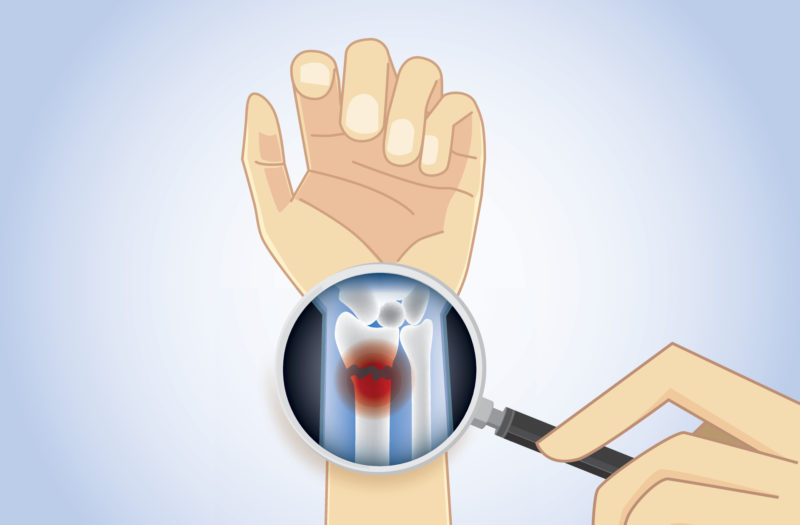When it comes to keeping rheumatoid arthritis (RA) well-controlled, a disease-modifying antirheumatic drug (DMARD) (like methotrexate) and/or a targeted drug, like a biologic or a JAK inhibitor, is usually necessary. But these medications alone aren’t always sufficient to ease pain and stiffness, especially during flares. In those cases, it’s common for patients to add a nonsteroidal anti-inflammatory drug (NSAID), like ibuprofen, and/or a glucocorticoid, like prednisone, to the mix.
NSAIDs, however, can cause gastrointestinal bleeding and ulcers when used frequently or taken in high doses. As a result, patients may be advised to also take a proton pump inhibitor (PPI) drug to protect their gastrointestinal tract. This class of medications includes esomeprazole (Nexium), lansoprazole (Prevacid), and omeprazole (Prilosec).
But PPIs, as well as glucocorticoids, come with a slew of side effects, including an increased risk of bone fractures with both medications.
People with rheumatoid arthritis are already vulnerable to fractures and thin bones because of inflammation and other factors, so it’s important to understand whether commonly taken medications can also affect this risk
A study recently published in the journal Annals of the Rheumatic Diseases evaluated the medication use and fracture occurrence of 12,351 rheumatoid arthritis patients between 1997 and 2017. Among the patients (all of whom were over the age of 50), 1,411 osteoporotic fractures occurred in the 10-year timeframe.
The authors found that RA patients who were taking either a glucocorticoid or a PPI were 1.2 times more likely to develop an osteoporotic fracture than those who weren’t. Patients who were using both of these drugs fared even worse: 1.6 times more likely to be at risk for a fracture.
Glucocorticoids affect fracture risk because they interfere with the formation of bone remodeling. It’s not known why proton pump inhibitors might bad for bones, but previous studies have highlighted this association.
“Fracture risk assessment could be considered when a patient with RA is co-prescribed oral [glucocorticoids] and PPIs,” the authors concluded. In other words, if you’re taking these medications, ask your doctor about your risk for bone fractures, especially if you have other osteoporosis risk factors. Your doctor may suggest bone density screening sooner or more frequently to assess your bone health.
Track Your Medications with ArthritisPower
Join CreakyJoints’ patient-centered research registry and log your medications to track side effects and impact on disease activity. Learn more and sign up here.
Abtahi S. Concomitant use of oral glucocorticoids and proton pump inhibitors and risk of osteoporotic fractures among patients with rheumatoid arthritis: a population-based cohort study.” Annals of the Rheumatic Diseases. December 11, 2020. doi: http://dx.doi.org/10.1136/annrheumdis-2020-218758.
Walsh N. Combo Tx for RA Raises Fracture Risk. MedPage Today. February 24, 2021. https://www.medpagetoday.com/rheumatology/arthritis/91341.






